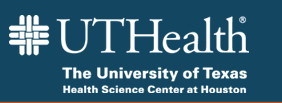Randomized Controlled Trial of Argatroban With Tissue Plasminogen Activator (tPA) for Acute Stroke
| Status: | Completed |
|---|---|
| Conditions: | Neurology |
| Therapuetic Areas: | Neurology |
| Healthy: | No |
| Age Range: | 18 - Any |
| Updated: | 4/13/2015 |
| Start Date: | October 2011 |
| End Date: | December 2015 |
| Contact: | Loren Shen, RN, BSN |
| Email: | Loren.Shen@uth.tmc.edu |
| Phone: | 713.500.7084 |
ARTSS-2: A Pilot, Phase 2b, Randomized, Multi-center Trial of Argatroban in Combination With Recombinant Tissue Plasminogen Activator for Acute Stroke
Randomized controlled clinical trial to estimate overall treatment benefit (improvement in
disability) among stroke patients treated with rt-PA who are randomized to also receive
either low-dose Argatroban, high-dose Argatroban or neither.
disability) among stroke patients treated with rt-PA who are randomized to also receive
either low-dose Argatroban, high-dose Argatroban or neither.
Recombinant tissue plasminogen activator (rt-PA), the only proven treatment for acute
ischemic stroke, fails to reperfuse brain in most patients with large thrombi. In our Phase
2a low-dose safety study (n=65), the two drugs appeared safe when delivered concomitantly
and recanalization rates were greater than historical controls. This study will provide
evidence-based hypotheses and data needed to design a larger definitive trial.
The purpose of this trial is to estimate overall treatment benefit (improvement in
disability) among stroke patients treated with rt-PA who are randomized to also receive
either low-dose Argatroban, high-dose Argatroban or neither.
ischemic stroke, fails to reperfuse brain in most patients with large thrombi. In our Phase
2a low-dose safety study (n=65), the two drugs appeared safe when delivered concomitantly
and recanalization rates were greater than historical controls. This study will provide
evidence-based hypotheses and data needed to design a larger definitive trial.
The purpose of this trial is to estimate overall treatment benefit (improvement in
disability) among stroke patients treated with rt-PA who are randomized to also receive
either low-dose Argatroban, high-dose Argatroban or neither.
Inclusion Criteria:
1. Disabling Ischemic stroke symptoms with onset < 3 hours treated with IV rt-PA by
local standards*.
* or ≤ 4.5 hours according to local standard of care.
2. Age ≥18.
3. NIHSS ≥ 10* or any NIHSS with an intracranial clot should be demonstrated on
neurovascular imaging (TCD or CTA) in any one of the following areas: distal internal
carotid artery (ICA) carotid artery (CA), middle cerebral artery (MCA - M1 or M2),
posterior cerebral artery (PCA - P1 or P2), distal vertebral or basilar artery.
- TCD criteria: Thrombolysis in brain ischemia (TIBI) 0, 1, 2 or 3 - CT-Angiogram:
thrombolysis in myocardial ischemia (TIMI) 0 or 1 * NIHSS ≥ 10, demonstration of clot
on neuroimaging is not necessary (i.e., enrollment can proceed with non-contrast head
CT alone), but if performed, a clot must be demonstrated.
4. For those patients who will undergo repeat CT-Angiogram at 2-3 hours, estimated
glomerular filtration rate (eGFR) must be ≥ 60 mL/min/1.73m2.
5. Females of childbearing potential must have a negative serum pregnancy test (HCG)
prior to the administration of trial medication.
6. Signed (written) informed consent by the patient or the patient's legal
representative and/or guardian.
Exclusion Criteria:
1. Patients whom the treating physician is planning (or could plan) to treat with
intra-arterial thrombolysis or other endovascular procedures (i.e., mechanical clot
retrieval) aimed at recanalization.
2. Evidence of intracranial hemorrhage (ICH) on baseline CT scan or diagnosis of a
non-vascular cause of neurologic deficit.
3. National institute health stroke scale (NIHSS) Level of Consciousness score (1a) ≥ 2.
4. Pre-existing disability with mRS ≥ 2.
5. CT scan findings of hypoattenuation of the x-ray signal (hypodensity) involving ≥ 1/3
of the MCA territory.
6. Any evidence of clinically significant bleeding, or known coagulopathy.
7. INR >1.5.
8. Patients with an elevated activated partial thromboplastin time (aPTT) greater than
the upper limit of normal
9. Patients currently, or within the previous 24 hours, on an oral direct thrombin
inhibitor (i.e., dabigatran).
10. Heparin flush required for an IV line. Line flushes with saline only.
11. Any history of intra-cranial hemorrhage, known arteriovenous -malformation or
unsecured cerebral aneurysms.
12. Significant bleeding episode [e.g. gastrointestinal (GI) or urinary tract] within the
3 weeks before study enrollment.
13. Major surgery or serious trauma in last 2 weeks.
14. Patients who have had an arterial puncture at a non-compressible site, biopsy of
parenchymal organ, or lumbar puncture within the last 2 weeks.
15. Previous stroke, myocardial infarction (MI), post myocardial infarction pericarditis,
intracranial surgery, or significant head trauma within 3 months.
16. Uncontrolled hypertension [Systolic blood pressure (SBP) > 185 mmHg or diastolic
blood pressure (DBP) >110 mmHg] that does not respond to intravenous
anti-hypertensive agents.
17. Surgical intervention (any reason) anticipated within the next 48 hours.
18. Known history of clinically significant hepatic dysfunction or liver disease -
including a current history of alcohol abuse.
19. Abnormal blood glucose <50 mg/dL (2.7 mmol/L).
20. History of primary or metastatic brain tumor.
21. Current platelet count < 100,000/mm3.
22. Life expectancy < 3 months.
23. Patient who, in the judgment of the investigator, needs to be on concomitant (i.e.,
during the Argatroban infusion) anticoagulants other than Argatroban, including any
form of heparin, unfractionated heparin (UFH), low molecular weight heparin (LMWH),
defibrinogenating agent, dextran, other direct thrombin inhibitors or thrombolytic
agents, glycoprotein llb/llla (GPIIb/IIIa) inhibitor or warfarin.
24. Participated in any investigational study within 30 days before the first dose of
study medication.
25. Known hypersensitivity to Argatroban or its agents.
26. Additional exclusion criteria if patient presents between 3-4.5 hours:
1. Age >80
2. Currently taking oral anticoagulants (regardless of INR)
3. A history of stroke and diabetes.
4. NIHSS > 25.
We found this trial at
1
site
7000 Fannin St
Houston, Texas 77030
Houston, Texas 77030
(713) 500-4472

University of Texas Health Science Center at Houston The University of Texas Health Science Center...
Click here to add this to my saved trials